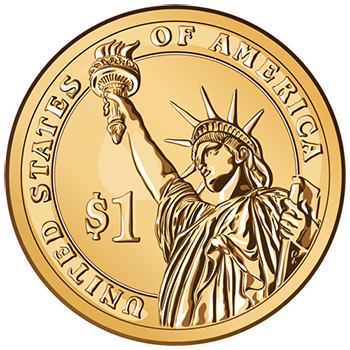Bring Me Your Tired, Your Poor, Your Whistleblowers
The United States’ whistleblower programs are a model for other countries. American exceptionalism generally may be a matter for debate, but not when it comes to empowering, protecting and rewarding whistleblowers – that’s one area in which the good ol’ US of A can absolutely claim moral leadership.
That leadership shows in the way US whistleblower programs have become magnets for international whistleblowers. There is no requirement that an individual be a U.S. citizen or resident to bring cases under the False Claims Act, the Foreign Corrupt Practices Act, or to submit a tip to the SEC, IRS, or any other agency whistleblower program. Whistleblowers from foreign shores can bring their information to U.S. authorities and qualify for whistleblower awards, and they do.

The top six countries for international tips to the SEC whistleblower program are Canada, the United Kingdom, China, Australia, India, and Germany. The number of tips from these countries has been on an upward trend. Together, whistleblowers from these six countries submitted 209 tips in 2012. In 2021, that number rose to 717. As the SEC put it in a 2014 decision providing an award to a foreign whistleblower, “it makes no difference whether, for example, the claimant was a foreign national, the claimant resides overseas, the information was submitted from overseas, or the misconduct comprising the US securities law violation occurred entirely overseas.”
It’s no wonder that a 2020 report by the Working Group on Bribery of the Organization for Economic Co-operation and Development (OECD) praised the U.S. as a leader in fighting “transnational corruption” and singled out the SEC’s whistleblower program for praise. The peculiar vantage point of international whistleblowers is particularly helpful in the detection and prosecution of the anti-bribery provisions of the FCPA, which prohibit bribes paid by U.S. persons or companies to a foreign government official to assist in obtaining or retaining business.
Since this is America, after all, readers won’t be surprised to hear that there’s something in it for our national interest. Welcoming whistleblowers to our shores pays off for American enforcement, bringing in tips that lead to effective fraud-fighting that helps protect American investors. In 2021, the SEC announced an award of $5 million to joint whistleblowers outside the United States. Since SEC whistleblowers receive 10-30% of the government recovery1, these foreign whistleblowers helped the government in a fraud enforcement action that led to between $16.6 and $50 million in penalties!
Whistleblowers are especially important given the mismatch between the SEC’s shrinking staff and its expansive mandate to safeguard America’s capital markets. As SEC Chair Gary Gensler said in his testimony to a Senate committee today, the SEC is “doing more with less,” because its Enforcement Division staff levels have shrunk 5 percent since 2016. Whistleblowers both at home and abroad can be an important force-multiplier for stretched agencies.
In 2021, the SEC received tips from whistleblowers in 99 countries, with international tips comprising 11% of the total tips submitted to the agency. In that same year, 20 percent of SEC awards went to international whistleblowers, showing that many international tips led to successful and remunerative enforcement actions. And the SEC is not alone in putting out the welcome mat for international whistleblowers. In 2021, the IRS received 134 whistleblower tips from individuals outside the US.
America is even willing to pay whistleblowers for the money that foreign countries recover as a result of their tips. In 2021, the CFTC announced their largest ever whistleblower award – $200 million. The whistleblower provided information about Deutsche Bank’s manipulation of the London Interbank Offered Rate (LIBOR), an important financial benchmark. Significantly, the amount of the reward was calculated based on the total amount of money recovered by both the US and the UK Financial Conduct Authority. America was willing to foot the bill to recognize the importance of the whistleblower’s assistance in recovering money for our former colonial overlords. Talk about putting our pounds sterling where our mouth is.
Like Lady Liberty’s torch, the American whistleblower reward programs beckon foreign whistleblowers to our shores with the promise of rewards, protection against retaliation and an aggressive enforcement staff within the various participating US agencies who will act on their information. As the above statistics attest, international whistleblowers increasingly are heeding this call as whistleblower programs like the SEC’s continue to deliver on this promise and harness the power of their tips to root out fraud and corruption.
Written by Mary Inman and Elizabeth Soltan of Constantine Cannon LLP. Edited by Kate Scanlan of Keller Grover LLP and Tony Munter of Price Benowitz. Fact checked by Julia-Jeane Lighten of Taxpayers Against Fraud.
1. SEC recoveries are a bit different than recoveries under the False Claims Act. Successful SEC enforcement can result in both the return of the profits from wrongdoing, which usually go to harmed investors, and the imposition of monetary penalties, which usually go to the government. For more information, see the SEC’s bulletin titled “How Victims of Investment Fraud May Recover Money.”